B.R. Sanders's Blog, page 14
December 25, 2015
Book Review: HISTORY OF GLITTER AND BLOOD
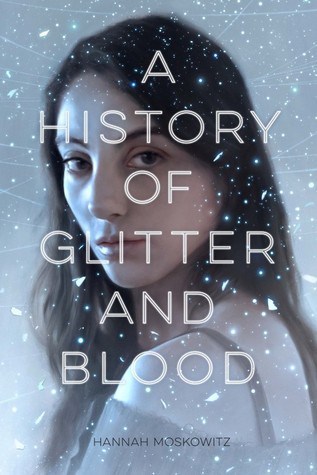
Notes on Diversity:
Are you looking for a book about a bunch of queer teenage fairies who are completely cool with the fact that they are queer? This is your book. This book is extremely, sweetly queer, unapologetically so, with nary a coming out story or struggle with identity in sight.1
The book also explores physical and mental disabilities in great depth. Because A History of Glitter and Blood is set in a fairy-gnome-tightroper war (more on this in a second) characters get wounded, irrevocably, in both visible and invisible ways.

this book could have been alternately titled A History of Glittery Rainbows
There’s some latent class issues in the book2, but they weren’t quite fleshed out. There’s a subtext there that could be read between the lines, though. In terms of racial diversity, there’s not much on the page either way. Beckan, the protagonist3, seems canonically White given both the cover and the interior illustrations. But no clear physical descriptions are given of the other characters, and you could easily headcanon virtually any of the other characters as virtually any race.4
Review:
The thing you have to understand about fairies is that they’re not very good at writing history. The other thing you need to know is that fairies are fickle.
The last thing you need to know is that there are four pesky, defiant young fairies in Ferrum who don’t want you to understand those things. When war breaks out between the gnomes underground and the tightropers up in the air, the fairies are caught in the middle. And the fairies decide to abandon their city–all except for Beckan, Josha, Scrap, and Cricket. The four of them ride out the war together, as a little wolf pack, scraping by on their wits and their bodies and their dependence on each other.
I won’t tell you anymore of the plot besides that except to say that this isn’t a story about ending a war, it’s about surviving it. Literally everything about the book, from the structure to the narrative choices, to the illustrations, is about survival. This is a book, I think, about grief and self-forgiveness, and ultimately, hope. It is, at its heart, a deeply bittersweet thing.
A note about the structure. If you’re not expecting it (and I wasn’t5), the book will very quickly make you go like this:

“Wait, that fairy just wrote what now?”
And I loved it. But it may not be for everyone. This is a book that is very aware that it is a book. If you are tolerant of (or, like myself, enjoy) that kind of self-awareness, then it comes together. The writing of the book itself is part of the story. The writing of the book is part of the healing. As a writer, this appealed to me greatly.
My caveats for the book–which are frankly very few–are that I wish there had been more space for the worldbuilding. Not just to sate my idle curiosities but also because at times the radical messages in the text got lost below a level of (I am assuming unintentional) essentialism of some of the societies Moskowitz introduces. For example, a key plot point is that the gnomes can’t move forward after the death of their king until they crown a new one. They just…can’t. And even though there are prominent gnome characters in the text, this assumption (is it biological? cultural? Why can’t they? How hierarchical is their society if it’s so fixated on having a king?) is never really questioned. Again, I don’t think this was Moskowitz’s intent, but the full effect was that individuals within a society (but it gnome or fairy or tightroper) can transcend cultural paradigms, but only those certain individuals, and for very opaque reasons (youth, maybe?).
A second caveat–difficult to talk about without spoiling the book–is in regard to Beckan herself. A History of Glitter and Blood is one of those peculiar books that is, at once, deeply feminist and also largely populated by male characters. That means that Beckan shoulders a particular weight in the narrative. And when the narrative becomes unhinged, when it becomes clear that there are, essentially, multiple Beckans (a real Beckan that we, the reader sometimes glimpse, a possibly idealized Beckan on the page) this confuses her place in the narrative. For me, it raised questions of Beckan’s agency, her personhood. It raised a question of whether this was a novel that looked like it was about a girl but was really about a boy. And if that is the case, how much of the real Beckan was participating in the narrative?
I finished A History of Glitter and Blood in two days. I devoured it. I loved it. These are not fatal flaws, simply enough to give me pause. And that’s good–that means the book made me think and wrestle with it. The strengths of the book, for me, lie in its cleverness, its earnestness, its unexpected and very cool worldbuilding. I am definitely seeking out more of Moskowitz’s work.
This is a brutal, quippy, sweet book. Devour it if you can.
 1Not that coming out stories or struggles against homophobia and/or heteronormativity are bad! They aren’t! But if you’re looking for some spec fic featuring queer characters where that’s not the focus, then this serves that right up.
1Not that coming out stories or struggles against homophobia and/or heteronormativity are bad! They aren’t! But if you’re looking for some spec fic featuring queer characters where that’s not the focus, then this serves that right up.
2Among the fairies, there seems to be an initial, or implied, class divide between Beckan and Josha on the one hand and Cricket and Scrap on the other. Before the war, I gathered that Beckan and Josha lived in a nicer part of Ferrum than Cricket and Josha. But it’s unclear what that means to fairies. More broadly, there were definite class tensions between the fairies (a literal upper class, living as they did above ground) and the gnomes, who lived underground and did the fairies’ grunt work. These tensions were only lightly sketched as a loose premise for the war to come. Again, there are these underpinnings in the text, but neither level is built out in much detail.
3I mean, I guess she stays the protagonist? May it’s more that the narrator changes. But if the narrator is unreliable then what does that mean for the protagonist? All I’m saying is when your narrator is unreliable it makes me take your protagonist’s (who is not your narrator) actions with a grain of salt.
4This is something, but it’s just a little something. Having the space to headcanon any way you want is better than being told everyone in the story is White for sure, but it’s still not as nice (I would guess) as having a character explicitly marked as someone who looks like you.
5All I knew was that people I respected on Twitter said this was a Good Book. And it looked cool. It had queer fairies in it? So I picked it up. I have no idea if there was any discussion of the weirdness of the text in the bookosphere, of Moskowitz’s authorial choices on structure, etc. I usually do this. I impulsively buy books based on instinct and very little else so I often miss whatever context there is surrounding a lot of books I read.
Want posts like this delivered to your inbox? Sign up for my newsletter!


December 21, 2015
SADness and the Longest Night of the Year

Behold! My dawn simulator/light box/alarm clock thingie.
I have Seasonal Affective Disorder.
I have light boxes in my bedroom, next to my favorite arm chair, and at my cubicle at work. I sun myself like the delicate hothouse flower I (apparently) am. I get up early and go exercise. I take meds. I take Vitamin D.
Every winter I get depressed anyway. I get a kind of bone-deep tiredness that settles in and won’t go away. The kind where you feel like you never quite wake up in the morning, and then suddenly it’s 6 o’clock in the evening. The depression makes me anxious. Have you ever been depressed and anxious at the same time? It’s a clusterfuck of self-blame, of feeling trapped, of wanting to claw your way out of your own skin, of wanting to cry, of wanting to run away, but skipping showers (again, shut UP) and going to sleep before you four year old at 7:30pm instead. But not actually sleeping through the night.
It’s the winter solstice. It’s the longest night of the year. The days are supposed to get longer from here on out. This is the moment where my brain is supposed to start climbing out of its stupid pit. But it doesn’t. It still hibernates in its weird circuits of depression–anxiety–depression–anxiety until summer comes again.
The days creep a little longer, but each one is not quite long enough. It’s a teasing, taunting thing, these incrementally longer, but not long enough days that slide by.
Today was a hard day. Tomorrow will be a hard one, too.


December 18, 2015
Short Story Rec: “Ogres of East Africa” by Sofia Samatar
You can listen to the story for free over at Pocastle, or you can pick up a copy of Long Hidden: Speculative Fiction From the Margins of History.
I find myself adding it in the margins. There is a strange pleasure in this writing and not-writing, these letters that hang between revelation and oblivion.
If my employer discovered these notes, he would call them impudence, cunning, a trick. What would I say in my defense? “Sir, I was unable to tell you. Sir, I was unable to speak of the weeping mother of Kiptegen.”
He would laugh: he believes that all words are found in his language.
This just a stunning piece of short fiction. Samatar is telling many stories at once here–or, perhaps, a single story stretched across many levels–and she does so beautifully, masterfully.
Alibhai and Mary are hired by a White hunter for a trip to go hunting the ogres of East Africa; that’s the most basic reading of the story on the surface. But every element of the story is in conversation with every other element. Everything is symbolic and not symbolic at the same time. Alibhai is both a representative of marginalized people, a person speaking back against literally hundreds of years of narratives speaking over him, and a finely realized individual. Symbolic, yes, but also specific. Everything works at every level.
And the ending is phenomenal.


December 16, 2015
I’m on the Patreon!
What’s Patreon?
It’s crowdfunding, basically–but it little bite-sized pieces. Instead of pledging a lump sum for a large project, you pledge small amounts and get small projects in return, like short stories at regular intervals from me. You become my patron.
Why Patreon?
Patreon is a good model for me because rather than funding one large project–like funding a movie or something–a steady if small stream of income enables me to write MORE fiction FASTER. And that’s good for both you and me!
What Do I Get For Pledging?
It depends on how much you pledge! The rewards are tiered:
$1: Get Digital Aerdh Fiction – short stories and interactive fiction set in the world of Aerdh delivered straight to your inbox!
$3: Moar Interactive Fiction – get $1 rewards and interactive fiction set outside the Aerdh universe!
$5: Patreon Novella – get $1 and $3 rewards and a completely original novella!
$10: I Grant You One Wish – get $1, $3, $5 rewards and you can choose one of these three options (full details on the Patreon page):
I’ll write you a short story.
I’ll write a blog post about a topic of your choice.
I’ll read and developmentally edit a piece of your work.


December 15, 2015
Disrupting Publishing: 12/15/2015
It’s that time again: that time every week where I round up links to articles written by marginalized people pushing back against oppression in publishing. I’m aggregated as many marginalized voices as possible from as many vectors as possible, and the more intersectional the better. As always if you’ve read something I missed please link it in the comments.
“Twinja Book Reviews 3rd Annual Diversity Month Day Nine: Interview with Constance Burris”
Right now, I feel like the message for diverse books is being misinterpreted. Some of the people who hear the call for diverse books are feeling like they should be the ones writing diverse books. But some of these people should just be uplifting and promoting the works of diverse authors who write diverse books.
Some folks are try their best to write to the trends but sometimes we need to take a step back. For example, I am intrigued by reading stories where the lead is gay. But that doesn’t mean I should write a story with a gay main character. It also doesn’t mean I shouldn’t. I just need to check my motives.
“Why I Chose To Write Publicly About Anxiety” by Kameron Hurley
All this said, and as much as I want to encourage others to take care of themselves, it also struck me how much of a privilege mental health is. The reality is that even with insurance, the costs of monthly meds on top of the actual drugs I need to stay alive is not very cheap. If I’d done this ten years ago, it would have been seriously financially difficult. Not to mention getting the time off to go to appointments, and actually getting in to see a doctor (I had to wait three months! Fuck). I’ve harped on our broken healthcare industry before, but if we want to have a sane and compassionate society, we must have equal access to care for people no matter their financial situation, and that’s still not possible in this country. It’s no wonder so many with anxiety just pick up cheap liquor instead.
“A Pledge for SF/F Conventions Accessibility” by Lynne, Michael, and Caitlin at Uncanny Magazine
Accessibility is not PC Bullshit. It is the law in the United States, and it has been for 25 years.
We can and should do better.
All members of a convention should be treated with dignity.
“The Writing Class” by Jaswinder Bolina for The Poetry Foundation
Graduate school endorses the idea that we are rare and recruited for our talents, but the more accurate statement might be that we are rare only because we have access to graduate school.


December 14, 2015
Roundup: December 6-12, 2015
Wanderings on the Internet
Ariah received a 5 star review over at Nerd Girl Official!
Myriad Carnival got a positive review from Publisher’s Weekly–and my story, “The Sharphooter” got a positive shout-out!
If you are so inclined, browse the Supernatural Haikus.
Writing Update
The Search continues. A darling died this week, and we approach the end of draft 1 with great speed.
Want posts like this delivered to your inbox? Sign up for my newsletter!


December 11, 2015
Short Stories I Have Lately Loved: 12/11/2015
“Shimmering, Warm, and Bright” by Shveta Thakrar ; Interfictions, issue 6, Nov. 2015
She leapt into the luminescence, burying herself in its warmth. It soaked into her skin, saturating her, familiar, loving. No, there was no way she could ever be sad.
And yet we see Tejal be sad throughout the story, because that’s how brains are. Even the best balm doesn’t protect you forever.
I read this story weeks ago, but I keep thinking about it as the sun slinks further away and the days get clipped shorter and shorter. I write this next to a paltry little light box, and what I wouldn’t give for Tejal’s sunshine closet. Not that it solves all of her problems, or her mother’s problems, but, still, what I wouldn’t give for one. Shveta Thakrar tapped into the magic of the everyday and the creeping horror of depression in this story. As someone with seasonal affective disorder, and as someone who’s wrestled with depression otherwise, this story sticks with me.
“Geometries of Belonging” by Rose Lemberg; Beneath Ceaseless Skies, issue #183
I know that one day he will ask me to heal him.
The day I heal him is the day I’ll heal myself.
There are some short stories that hit you with their precision, with their brevity. And there are are some, like, this one, that are long, luxurious reads. There is a lot going on in “Geometries of Belonging”–plots and subplots that dovetail and mirror themes back together. It’s an intricate, finely wrought piece about damaged people and the damage people do. It’s a heartbreaking piece about heartbreak. It’s just…it’s so emotionally deep and satisfying, and especially as a non-binary person it is so respectful and affirming. Bittersweet and lovely.
“Hwang’s Billion Brilliant Daughters” by Alice Sola Kim; Lightspeed, issue 67, Oct. 2015
And then what? It is disputed. Is Hwang a force of good? Is he evil? How does he choose which daughters he appears to? Is he a matrilineal family curse? He tries to explain but it is not satisfying to his daughters.
On the first read, this is a bizarre little fable. On the second read, this is an incredible sad story of immense grief and guilt, the story of a man attempting to reconcile his purpose in life once he perceived himself to have utterly, completely failed. Hwang simultaneously erases himself and makes himself foregrounded in the lives of his descendants–all of his billion brilliant daughters. All the daughters except for the ones he actually wants to see again. It is a sly, clever, terrible, heart-wrenching story.


December 10, 2015
Guest Post: Navigating the Literary World With Bias by Guinevere Thomas
I’m thrilled to have a guest post by Guin Thomas! Guin is one half of the Twinjas, who write as G.L. Thomas. Their debut, The Mark of Noba, was pretty darn great and you should totally check it out.
About Guin
Guinevere Thomas is one half of Twinja Book Reviews, a book blog that celebrates diversity in books by day, and slays ninjas by night. Diversity is her strong point. Procrastination is her weak point. Chat books with her on Twitter @dos_twinjas where she joins her partner in crime to tweet about diversity in books and media. Be sure to visit her official site www.gltomas.net
You learn a lot about yourself when you’re put in a room where you’re the only person that looks or is like you. You try to be strong. You try to get through it as unaffected as those around you. But nothing tests your strength more than a situation like that when you come from a marginalized group.
I’m reminded of an event I went to last year. It was a grassroots blogger conference celebrating children’s and YA literature. Their theme was diversity, so that aspect brought it to life, so even though I was in a foreign place, I was in an element I was comfortable in.
I remind myself of a moment when a prolific self published author spoke about how women who weren’t of color reviewed her books. This particular author writes amazing books for children. I don’t think they appeal to every demographic, but they appeal to the demographic most important to her. Young, Black and inner-city.
I think it’s been said by Malinda Lo before (in a four part essay no less), about the perception of books that are inclusive, when they’re reviewed by groups that don’t understand them. The author at the conference wished that when bloggers reviewed books, they admitted their biases in the reviews.
We all have it. Bias. It’s not always a bad thing to have bias, or at least for me it isn’t. When I review a book, I feel inclined to state where I’m coming from. When I write, I feel inclined to state where I’m coming from. I do this because I think it’s important to understand that I may not always get something. I may not be meant to. I may not always be a target audience for something, and that’s ok.
To this day, I still don’t understand a lot of experiences my boyfriend has. He is the epitome of White privilege. Male, cis, straight, abled, White. Hell, he’s even blue-eyed and blond haired. I’m not saying we’re an awkward fit, but our experiences and biases are way different. He can’t turn on a tv without something being geared toward him. Advertisement, media, opportunities. In the United States, everything is made for him. He didn’t grow up rich, but he benefits from all the things that I don’t.
So he can’t always see the issues that other marginalized groups face. People of color learn about race a lot quicker than White people. Queer people learn about homophobia a lot quicker than straight people (as well as people of different genders learning sooner than cisgender). People with disabilities learn about Ableism much quicker, and to be honest the list can keep going on. I speak on the level of a person of color because that’s the identity that I feel the strongest toward.
I don’t want to come down on White people, but as a person of color, I just don’t have the power to combat racism. I can only make my voice heard, which is still a powerful tool. But I still fall under one of the most brutalized, taken advantage of, misinterpreted groups since the Americas were colonized. My eyes, my bias, will always have that feeling of being powerless. You can disagree. But consider this.
While this counts for all marginalized groups, I see it more through the eyes of a person of color. We don’t have real power to protect ourselves. Our image, our lives, our children, our communities…
A Black person never dies in this country without being dragged through the dirt weeks after their death. There are a lot of people who still don’t see that Black Lives Matter comes from pain, and that many feel voicing our pain isn’t enough to people. No one has ever disagreed and said All lives didn’t matter, but BLM is a movement that’s just trying to voice, that we don’t feel ours do in comparison. People still need to view a video of a teenager getting gun down for our pain to feel real to people. Reasons like that make us feel like we need receipts of our pain to matter.
What does this have to do with books? Everything. We have so few effective tools to teach children. We’re living in a world that’s greatly affected by our generation before it. -Isms were a norm for them, so we inherit it. Sometimes our most memorable teachers are loved ones.
I didn’t read diversely much as a kid. As a kid I was into R.L. Stine, and as a preteen I was a Stephen King nut (no one ever believes me. But at 11, I never slept). Whatever I learned about culture different from mine was in a book. It was before the internet, so books were the only interesting, tasteful source of literature there was (I was also a teeny bopper, and loved teen magazines. Not very sophisticated). No one looked like me, and the ones that did were never Cuban, or had more than a few lines, but I was content with scraps for representation.
This is where I show my hood side, but I just gotta quote Nicki Minaj right quick.
“You’re in videos with black men, and you’re bringing out black women on your stages, but you don’t want to know how black women feel about something that’s so important? Come on, you can’t want the good without the bad. If you want to enjoy our culture and our lifestyle, bond with us, dance with us, have fun with us, twerk with us, rap with us, then you should also want to know what affects us, what is bothering us, what we feel is unfair to us. You shouldn’t not want to know that.”
And I apply that to every marginalization I don’t belong to. I’m learning to be a better ally. I think I make mistakes as an ally sometimes. In the past, I’ve wanted change so bad, I may have spoke in spaces that would’ve been better coming from someone who knew better than me, experienced it for themselves, instead of me joining in to speak. I’ve learned to amplify voices when it’s not my conversation to have, and have my seat when it’s time to be silent.
I’m not disabled, I’m not a religion that receives heavy scrutiny. I’m American born, I’m cisgender. I realize this isn’t a lot of privilege, but it’s still privilege. For voices that often get silenced in the conversation about inclusion, I should want to know what affects them in their community. I want to know how life treats them, what bothers them, I need to know the good and the bad.
I learned the most about inclusion and diversity in books as an adult. When it’s done wrong, when it’s done right, who should do it, who should steer clear. A lot of this is gray for me. I want silenced voices to be at the forefront, and receiving credit in the ways they’re often ignored. But I also want to still matter in lit where it’s not from a marginalized group too. This has been said so many times, most people can recite it verbatim, but kids who are White, straight, cis, abled, the whole she-bang, they need to see us, before we become a hashtag.
Our experiences shape whatever biases we have. But inclusion in books is a small step toward expanding our limited thinking. I remember being at Barnes & Noble and overhearing two sisters requesting a book they’d read in school about a little Black girl. And I was even more floored at the effort the mother was making to find them this book. It wasn’t just a book with a scattered diversity here and there. It was a Black girl their age, front and center, with a story different from theirs, that they were prepared to read over and over again.
You can’t tell me that’s not a good start…


December 9, 2015
#NaNoWriMo Writing Soundtrack
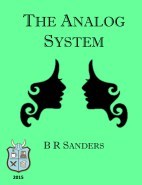
I usually don’t listen to music when I write. Often I’m writing on the bus, so the ambient noise is enough on its own. But, during NaNo, I wrote at home a lot.
My family is a loud family. There are four adults and a toddler and two mouthy cats living in a three bedroom house. It’s a Situation. One of those adults loves to play a guitar. Another adult really just needs to listen to music whenever she’s doing chores (loudly). The kiddo likes to put on dance recitals. Or, you know, just practice his dang screaming (because that’s a thing, I guess, that kids need to practice). And the cats are just loud-ass cats.
So. Writing at home. I needed to break out the headphones.
Turns out each stage of the draft had its own mini-soundtrack. It evolved pretty organically.
Act I: The Setup
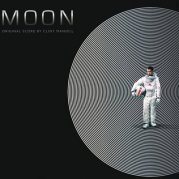
I ended up listening to the soundtrack of the film Moon pretty much non-stop as I wrote the first third of the book. It fit the tone of what I was writing: subtle, creepy, determined.
Throughout the whole first act, Iris (my main character) is basically on her own, isolated and playing detective–not unlike Sam Bell from the film. There’s something in the scoring of the soundtrack that taps into that perseverant loneliness.
Act 2: Captivity

There’s a section of the book where my main character, Iris, winds up locked down and at the mercy of her captors. For that part of the book I drifted to the Interstellar soundtrack.
The soundtrack moves between expansive and claustrophobic pieces. Iris, while trapped, does the same: she tries to mentally move beyond her four walls. Sometimes she can, sometimes she can’t.
Act 2: Freedom
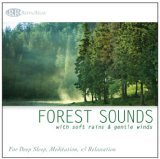
Iris is broken out of captivity and escapes to the forest! Instrumental music was replaced for a while with meditative forest sounds.
Sometimes the forest sounds crept into the writing. The track featured rainfall? Alright, in this scene everyone’s trapped in the cabin due to a rainstorm. They’re all on top of each other in a too-small space. What do they do now?
Act 3: The Big Finale
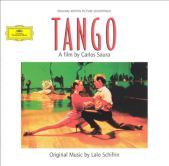
Iris and her friends go Take Care of Business via an Elaborate Plan that Goes Wrong. It’s a finely wrought and intricate plan. It’s an art. It’s a dance. I ended up listening to instrumental tangos–the tension, the darkness, the quickness all mirrored what I was trying to do with the plotting.


December 8, 2015
Disrupting Publishing: 12/8/2015
It’s that time again: that time every week where I round up links to articles written by marginalized people pushing back against oppression in publishing. I’m aggregated as many marginalized voices as possible from as many vectors as possible, and the more intersectional the better. As always if you’ve read something I missed please link it in the comments.
“‘Where are the brown people?’: authors slam lack of diversity in UK publishing” by Alison Flood for The Guardian
“In publishing circles, I’m often the only person of colour in a room and I’m made to feel very aware of that. If we are to tackle this problem, people like me need to feel welcome,” Shukla said. “Everyone keeps saying ‘I am not prejudiced, or racist’, but they won’t say it is my responsibility as well to try and do better.”
“Dear Philip Nel: Some Questions about WAS THE CAT IN THE HAT BLACK: THE HIDDEN RACISM OF CHILDREN’S LITERATURE AND WHY WE NEED DIVERSE BOOKS” by Deb Reese at American Indians in Children’s Literature
You know We Need Diverse Books is trademarked, right? And you know that the organization itself is a grass roots effort comprised largely of people of color who object to the ways that structural racism consistently rewards white, and specifically white males, for the work they do–over the work of people of marginalized communities, right? Are you in conversation with anyone at WNDB about your book, and/or have you had conversations with anyone there about using that phrase in the title of your book?
I hope so, because if not, you might be rendering them invisible and thereby contributing to “invisibility as a form of racism.”
The Twinjas are hosting their 3rd annual Diversity month on their blog right now! Interviews with diverse creators/authors are going up every couple of days, and it’s a goldmine of thoughts and reflections on the state of writing and publishing and intersectionality, so I cannot recommend checking it out highly enough!
“Fandom and the Intersection of Feminism and Race” at Full-Color Fantasy
So if you instinctively ask why a Black woman can’t just be strong or get upset if she is “reduced to a love interest,” allowed the kind of romantic storyline you take for granted and spit on, the answer is: Your brand of feminism doesn’t apply here.
And, you know, that doesn’t negate that brand of feminism. Intersectionality (of all kinds) asks you to look at feminism as something that is complex, not a set of one-size-fits-all rules.



![CropperCapture[161]](https://i.gr-assets.com/images/S/compressed.photo.goodreads.com/hostedimages/1450362245i/17416401._SX540_.png)


